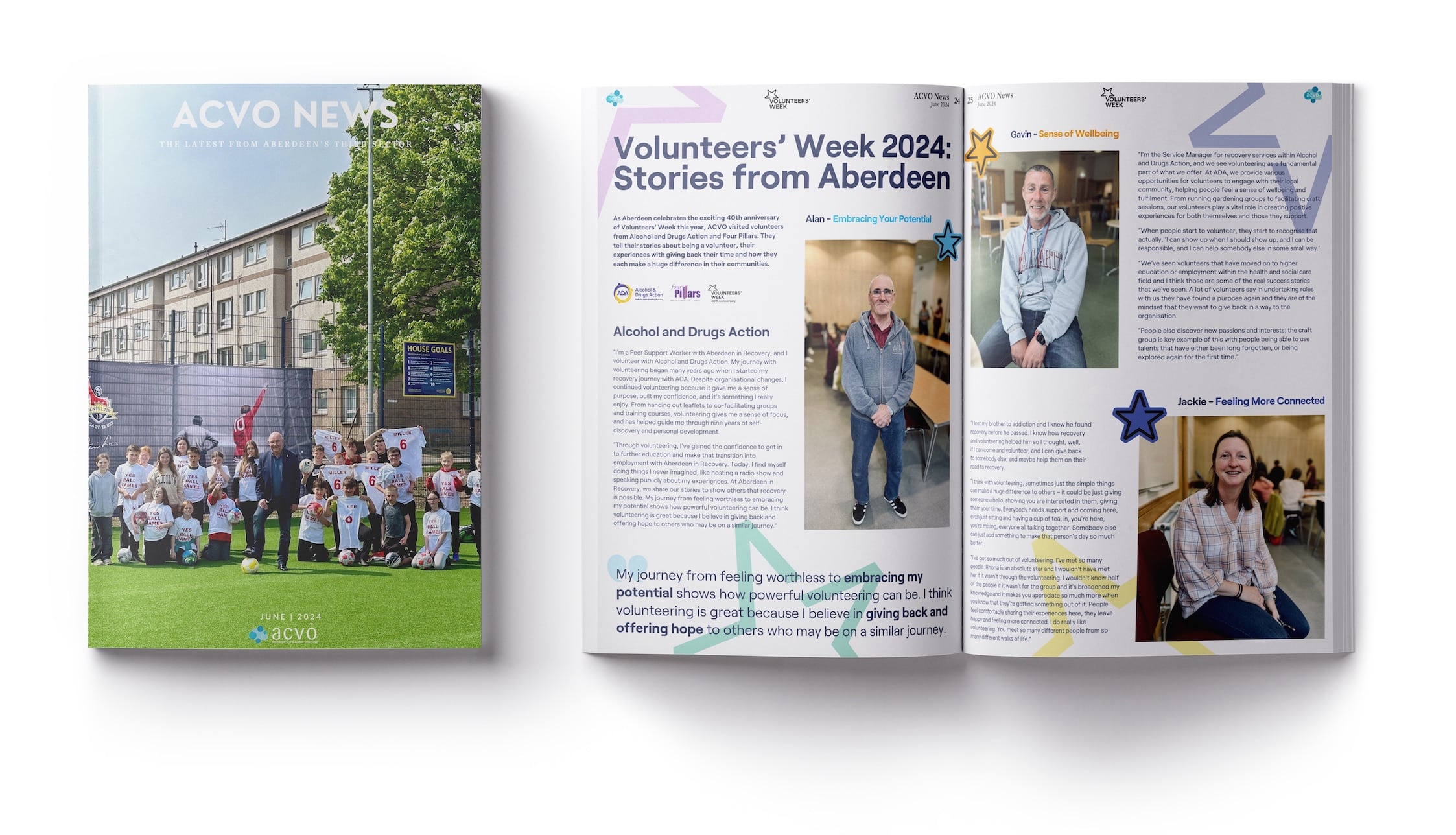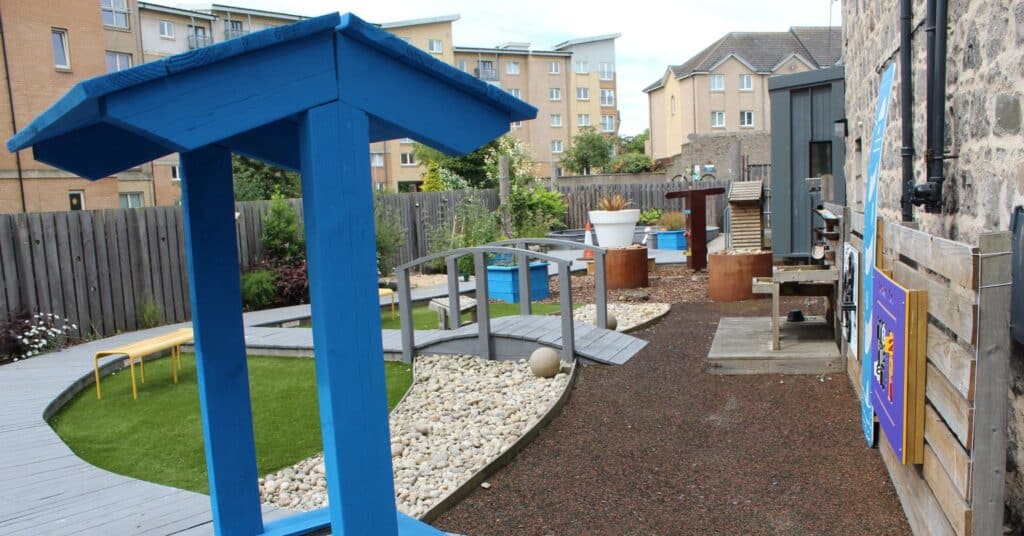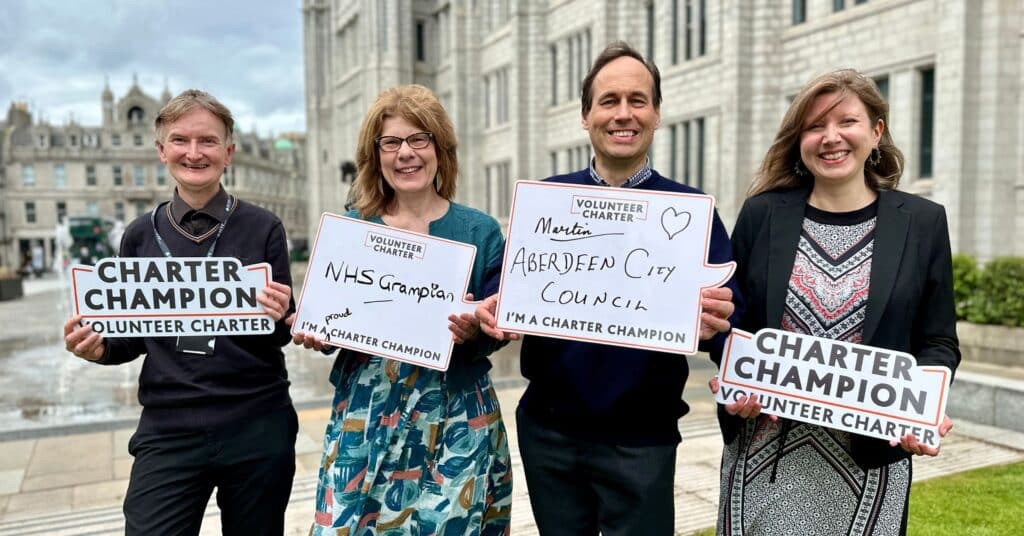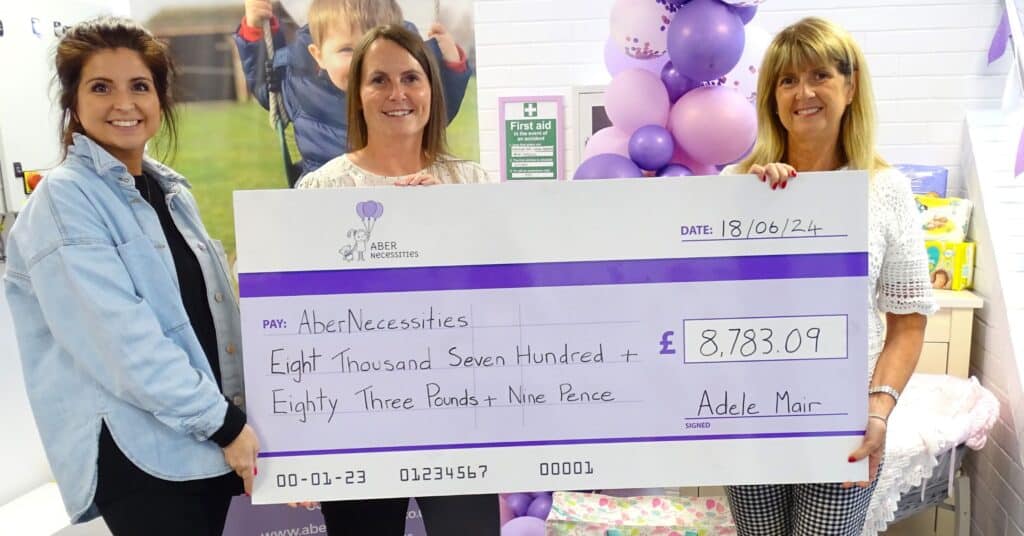ACE VOICES believe that everyone has a unique voice and one that is worth hearing. Since August 2010, they have been passionately committed to empowering people to believe in their own voice and support others to do the same.
Over the past 13 years, the organisation has evolved into an inspiring network of creative projects, partnerships and communities involving 15,000+ people of all ages within the North-East of Scotland, UK and further afield.
To hear more about their work, the inspiration behind starting the organisation and to learn about their plans for 2023/24, ACVO News caught up with ACE Voices Founder and Director, Alec Thompson-Miller.
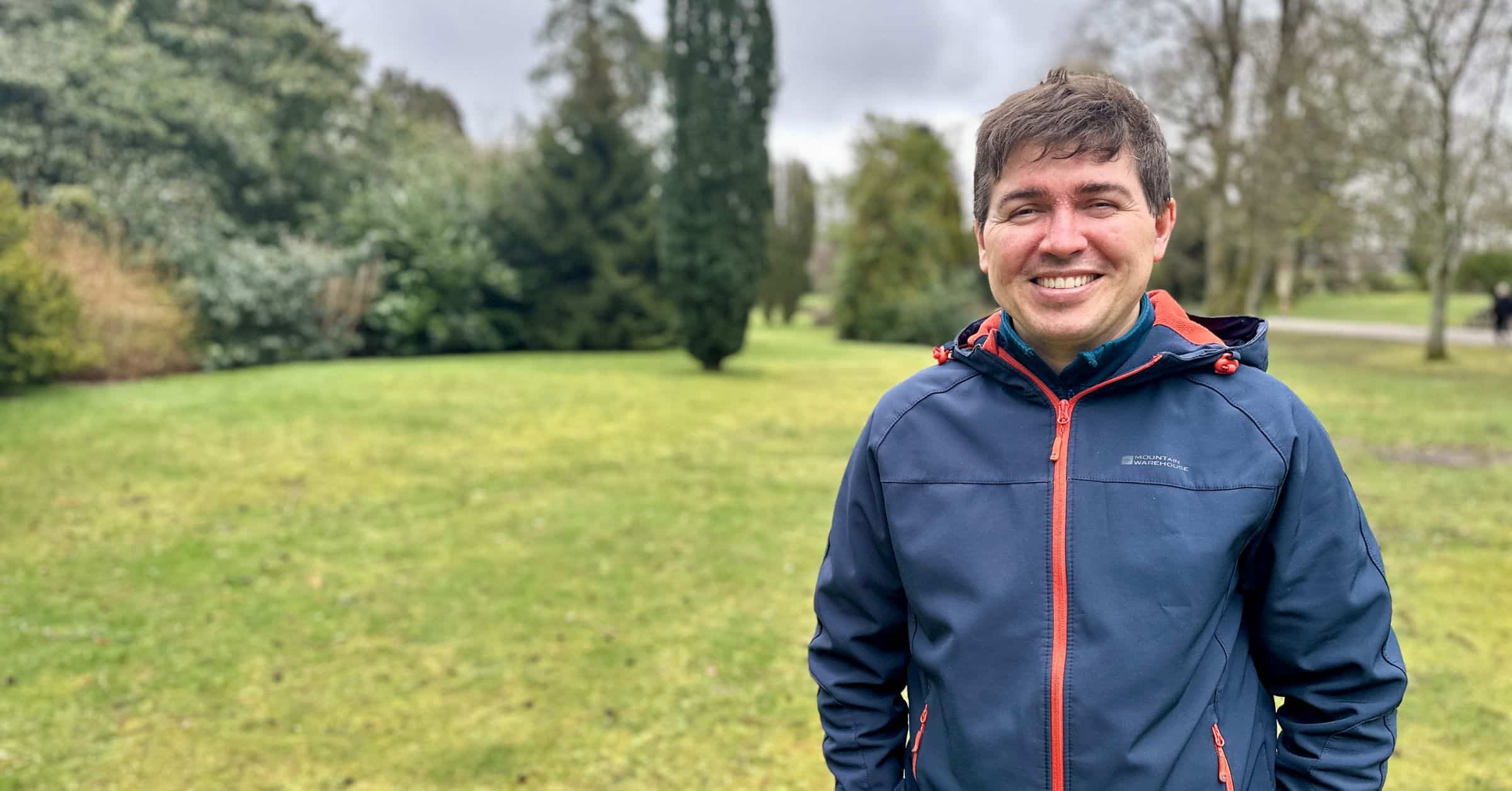
What was the inspiration behind starting ACE Voices?
The idea first came about in 2010 when I took part in a clowning course run by Nose to Nose called ‘Courage to Be’. The course was all about embracing uncertainty and connecting with your inner clown and inner child, stepping out of your comfort zone.
It is something that really inspired me, and that I have always incorporated into my work; often as practitioners, if you don’t regularly have experiences where you’re pushing yourself to explore new ideas and experiences, then you can lose a sense of how scary it might be for other people taking part in activities within unfamiliar settings.
It was a week-long intensive course with 12 participants and 2 tutors. It was quite overwhelming at the beginning; we were constantly being asked to do things which were really quite nerve-racking like walking on stage in front of others and taking part in improvisations with no planning.
Undertaking the course gave me the confidence to enjoy those uncertain moments more, and also gave me the push to leave my job teaching singing and choirs in Aberdeen City schools – my career for the previous five years – in order to pursue a new direction: Going freelance with the aim of creating something that brought people of all generations together in lots of different creative ways, and that also facilitated a stronger connection between people and the wider natural world.
Also, as part of that, I wanted to establish something that could help inspire others to have more confidence in themselves and want to do the same for other people within their local communities. So that’s where the idea of ACE Voices came from.
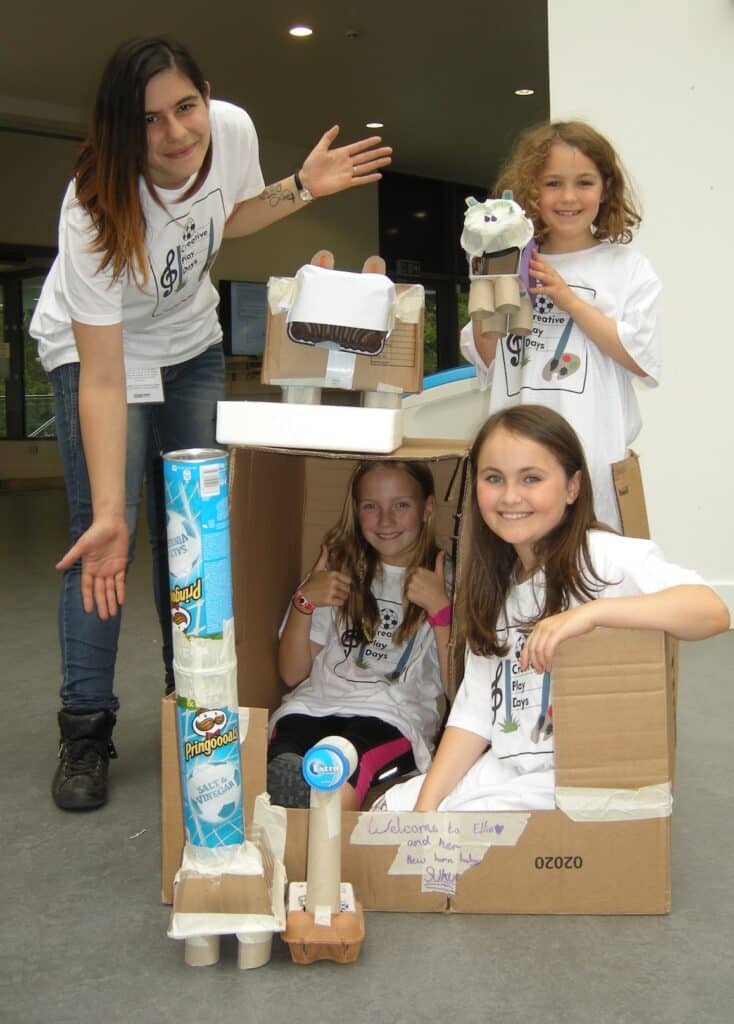
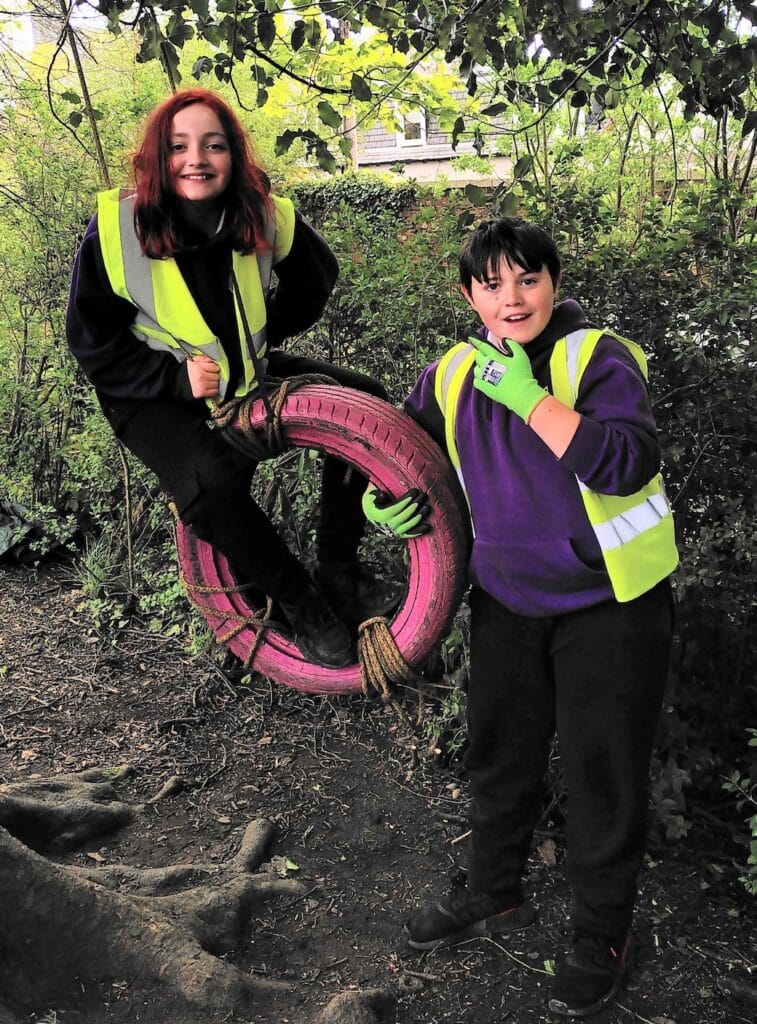
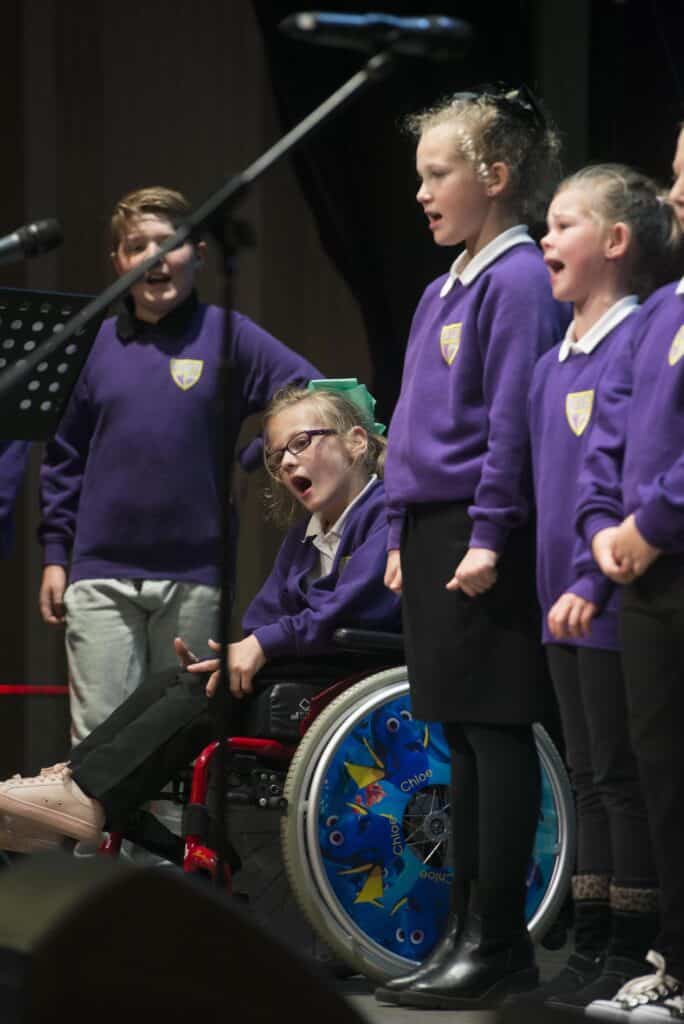
What kind of activities and work do ACE Voices do?
When we first started off, a lot of what we did was around singing and community choirs because that was where my main strength lay at the time. As things progressed, I wanted to weave in storytelling, outdoor learning experiences and intergenerational work.
Over the years we have continued to expand our reach, the experiences we offer and have continued to explore different ways of bringing, not just children together with each other, but also with groups of elderly people, and all ages in-between.
Leadership mentoring has also always been a big part of our work and something I consider very important. Over the past 13 years, we have provided personally tailored mentoring opportunities, which have been undertaken by volunteers from ages 8 to 90!
Increasingly, it’s becoming about facilitating that experience with people who want to do some volunteering but don’t yet have the confidence to jump in, and we really see the benefits that can bring to both individual growth and the positive impact they can then have on the lives of others.
Why do you think connecting people with their communities, both in the sense of people and place, is such an important part of your work?
I think so many of us have lost touch with what we’re a part of. If we think first about the idea of connection with the outdoors and the physical landscape, it’s quite sad in a way that we need to facilitate simple forms of outdoor play, but I appreciate there are many fears around being in outdoor spaces.
It seems to be the case that each generation is growing up with less space, less time and less permission to go off and be independent. Alongside that, we are also gradually creating generations of children who don’t have those role models who encourage engagement with the natural environment.
Having experiences like these are important for personal growth but also have wider impact; it’s becoming increasingly important to look at the effect our actions have on the world and the implications these have for our future. I feel, without nourishing that interest, it’s going to become increasingly difficult to engage with people and encourage understanding over how valuable our natural world is with subsequent generations.
In terms of people connecting on a personal, human level with each other, often there’s a perception that children are just going to want to be in front of a screen all the time. From my experience, I’ve found that it’s not necessarily always true. Instead, it is often the case that the online sphere is one of the places in which young people can create a meaningful connection with their peers, and if meaningful alternatives within communities were provided, where face-to-face interactions could take place, that these would also be used.
There aren’t really many places where young people and teenagers can be without stigma – playgrounds are often designed with very young children in mind, and so much negativity is placed on teenagers hanging around in these areas. I think if a sense of community interest and ownership is fostered by giving more opportunities to people within this demographic, through providing more spaces for them to meet and to just be without judgement, and also through ensuring their voices are valued and genuinely heard, then we can start to plant the seed of real change for generations to come.
We have seen this happen through simple approaches like Tesco’s collaboration with the Denis Law Legacy Trust, Police Scotland, Aberdeen City Council Youth Work team and other partners to provide a public space in the Summerhill area of Aberdeen, with the needs of young people at the centre – places to sit, artwork, Wifi connection, activities and mentorship – which has had a huge impact and reduced antisocial behaviour by around 90% within the community.
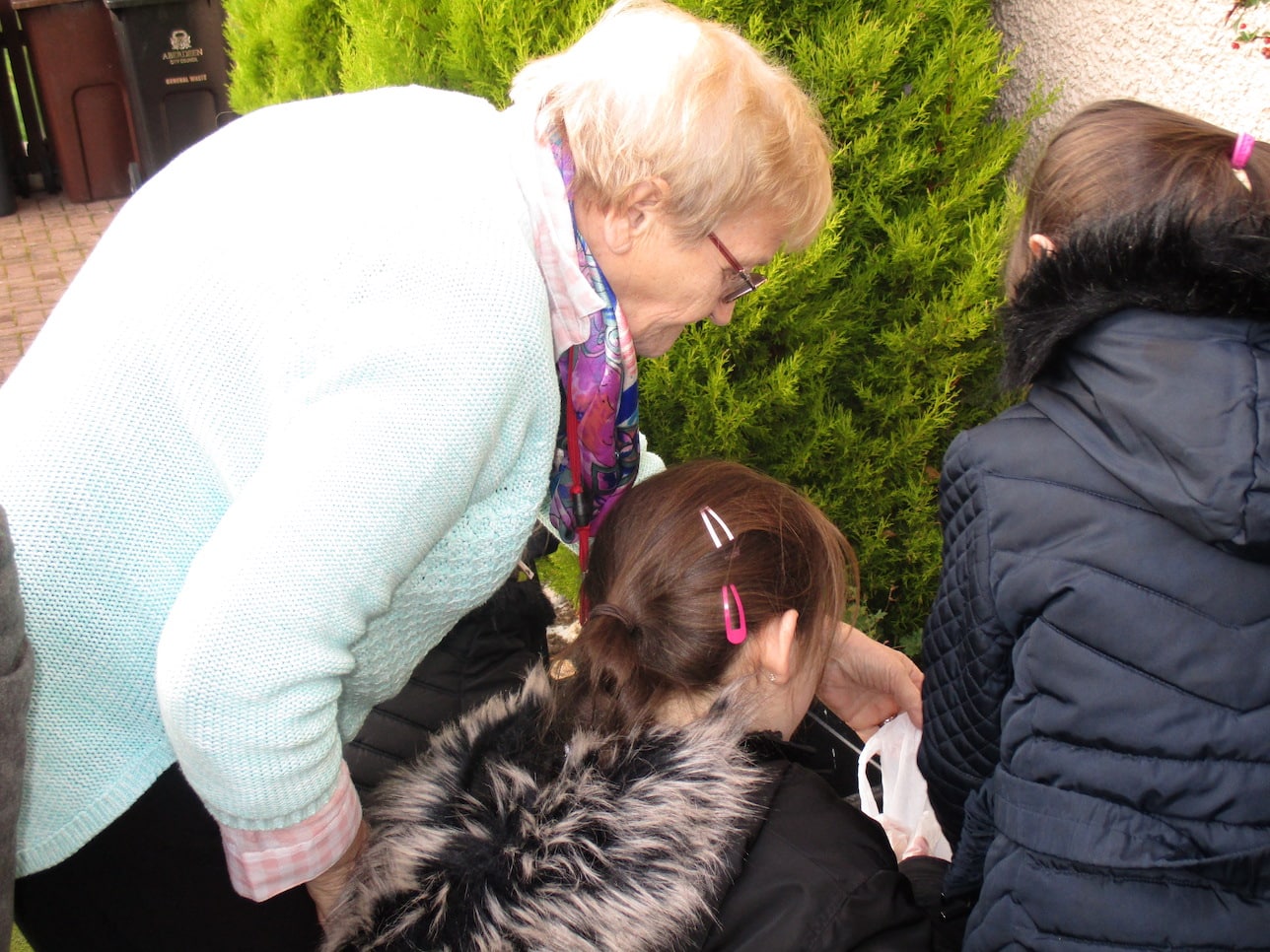
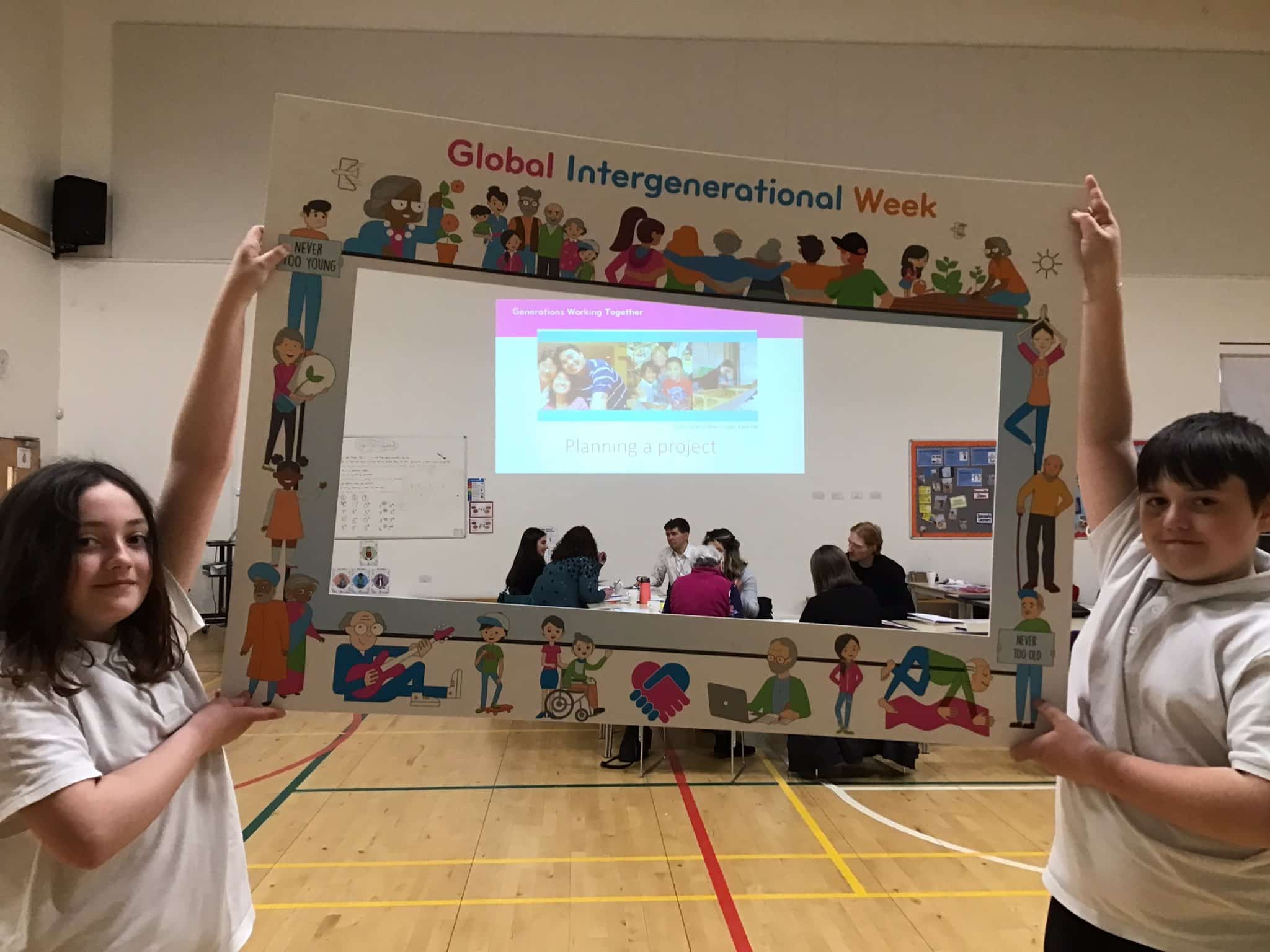
You mentioned that as well as working with groups of young people, you also undertake intergenerational work. Could you tell us a bit more about what this involves?
I think over the past few decades – not just as a result of COVID – but over a long period of time, for many different reasons, we aren’t as in touch and connected with each other as we used to be. Although the digital sphere brings a certain degree of connection, I think it also causes separation and inequalities.
Firstly, many people, especially those within the older demographic, don’t have access to digital opportunities so they can miss out in that way as we become increasingly reliant on technology to connect with one another.
I have often felt that in using digital technologies to replace face-to-face interactions, we start to see almost invisible elements of our social fabric disappear without us knowing until years down the line, we find ourselves in a situation where we start to wonder, “Why do I feel lonely? Why have I lost my sense of meaning?”
This idea was one of the driving inspirations behind the formation of our intergenerational projects. When I was teaching singing, in my previous job, I started exploring bringing older and younger children together, for example, a primary seven class and a primary one class, and it did feel like bringing two distinct, separate communities together.
Initially, they felt really awkward together, but through simple singing games, storytelling activities and team building challenges, you would start to see the gradual process of two communities becoming one.
From there, that element of our work grew and we started to expand on the idea that there was real value and opportunity in bringing distinct groups together to connect and learn from one another.
To give an example, March 2023 was the sixth birthday of one of our original intergenerational projects that started with Heathryburn Primary School in Northfield. Back in 2016, I developed an idea which would see the whole school given an experience of working with a group of elderly people with dementia. A lot of the inspiration behind the project came from my own journey and my experience as a child.
My Grandfather had dementia, and I didn’t really know how to communicate with him, but music became the key pathway for our connection – he would sit and listen as I played the piano, and I came to realise the effect that could have on someone with his condition. It also helped increase my understanding of how to be present with someone who has dementia.
Kingswood Day Centre of Bon Accord Care in Mastrick very kindly agreed to host the sessions, and I worked with children in P1-7, teaching lots of different games and sharing personal stories all with the aim of breaking down that stigma of communication with those with dementia, and every class enjoyed working with their new Kingswood friends. Singing was very much the vehicle for that relationship-building and the project really benefitted both the young and old people alike.
That work then inspired a longer term project with Aberdeen International Youth Festival which was supported by the Heritage Lottery Fund and saw Heathryburn’s Vocal Squad undertake weekly visits to Kingswood Day Centre over a whole year. That was a massive learning curve for me, but led to so many positive ripple effects in terms of personal impacts on the children, the elderly and the staff. The project inspired the ongoing work between Heathryburn and the local community as well as other similar intergenerational projects which we undertake around the city and beyond.
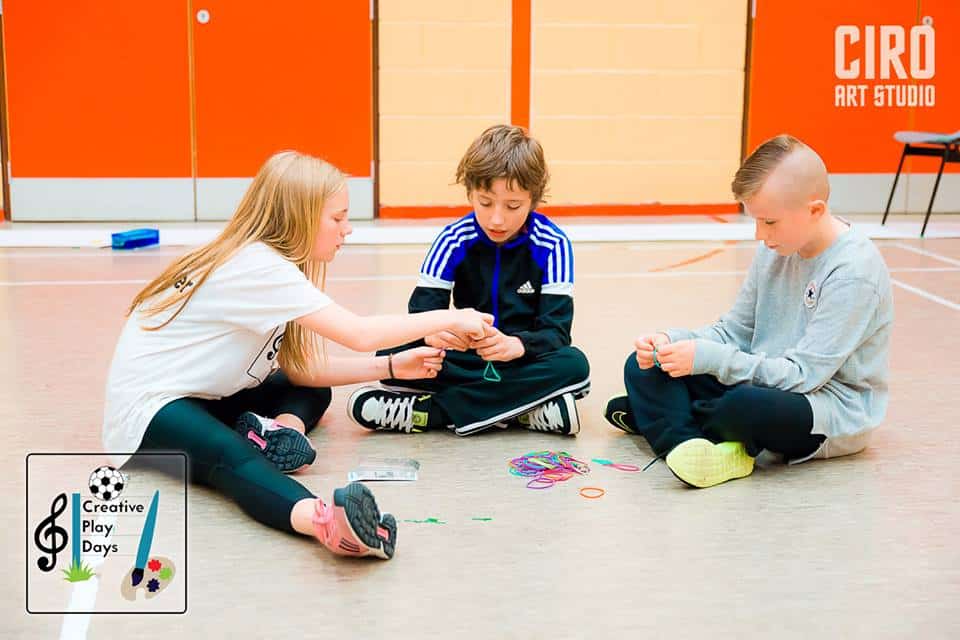
What kind of impacts do you see from the projects ACE Voices undertake?
I think our work establishes really valuable connections between individuals and community groups; over the years I’ve seen real growth in the people we have worked with. Through our leadership mentoring programme, I’ve seen confidence build within our mentors which has then been passed onto others as the cycle continues.
Seeing people who previously were far too nervous to sing a song in front of others or lead an activity come out of their shell and do that with ease – it’s in these moments when I see the positive impact of the work we do.
I think one of the reasons I always aim to support people with confidence building is that it’s something I have personally struggled with over many years. Music was a major part of my childhood and I think that’s why I see the value in its ability to bring people together. I sometimes found other social settings difficult to fully engage with and I think that’s why I gravitate towards supporting people who are coming from a similar place, whether that’s through social anxiety or social isolation.
I think it’s about creating a really open, trusting, brave space. There have been so many stories of people coming to our groups who really lacked confidence. So many people think they can’t sing for example, and that is often the result of what they have been told as a child when taking part in the choir or when trying to sign their favourite pop song.
When you think you can’t sing, it’s often because the pitch range of a song – the lowest note to the highest note – doesn’t necessarily match your own personal pitch. When you give people the tools, the understanding and the confidence they can overcome that barrier, start to connect with the music and actually enjoy what they are doing.
Seeing people on that journey of discovery is something I’ve always loved about the work we do.
What are your plans for the coming year?
During the past two years we have been working with Torry Development Trust, Old Torry Community Centre, RGU, Tullos School and Grace Banks of Silverhaar on a new intergenerational project called Torry I-GEN, but the name is likely to change as the project develops.
The project sees us working with a primary five class/cohort at Tullos School in Torry over two and a half years on a weekly basis, helping them connect with the natural world in and around the area. It also involves the creation of an adult group of all ages who can help nurture this group, and foster that sense of interest as the group of children move towards secondary school; opportunities for local secondary school pupils to volunteer; accredited community placements for students of different disciplines from RGU; collaborating with Generations Working Together as we incorporate their new primary school intergenerational module into the project; and getting involved in Tall Ships initiatives in 2024/25 when the Tall Ships return to Aberdeen in Summer 2025.
In April 2023 during Global Intergenerational Week, we launched our ACE Voices Intergenerational Choir, open to people of all ages and free to take part, in partnership with Heathryburn Primary School and Twisting The Rainbow; held our first performance alongside Madison Girls Choir (Wisconsin, USA) at APA’s Light The Blue Festival, thanks to Amanda NicLeòid of St Andrews Voices; and we’ll be performing as part of WayWORD Festival in September.
Other current projects include the 10th Year of our multi-disciplinary partnership with Heathryburn School; the 6th Year of our whole-school outdoor learning project with Abbotswell School; outdoor play and leadership work at St Joseph’s School; a multitude of leadership mentoring/volunteering opportunities for many ages; intergenerational minibus trips to BOLD Scotland partner, Kirrie Connections; a new collaboration with Portlethen Academy supporting secondary students of various ages; neuro-inclusive Umbrella A Cappella community singing group for adults; and preparing to rekindle our Creative Play Days youth leadership project, and running an event called ‘Marshmallow Town’ at Marischal College Quad!
On a personal level, I’ve been part of The Multiplier programme, a national leadership mentoring programme hosted by The Cares Family, an incredible network of charities which, at their core, is about bringing younger and older neighbours together through social clubs and other activities, and supporting a plethora of communities and organisations as they strive to create a better world for all.
I was the only person from Scotland to take part in the programme in 2021/2022, and it was such a transformative experience. It lasted for nine months, and in that time you work with a community of leaders from around the UK, all sharing their own challenges and successes during monthly gatherings. Through this network we learnt about different aspects of running community enterprises such as funding, community building, storytelling, vision and strategy, leadership development and the potential impact they can have.
Taking part in the programme has inspired me in so many ways, in particular to build longer term visions of establishing the means for communities to connect with each other and run their own leadership hubs and projects – watch this space!
If you are interested in the work of ACE Voices, you can find out more by contacting Alec Thompson-Miller at alec@acevoices.org and 07422 575711, or by visiting their social media pages:
Facebook: www.facebook.com/acevoices
Twitter/X: @acevoices
Look out for their new website, which will be ready just before Christmas!

